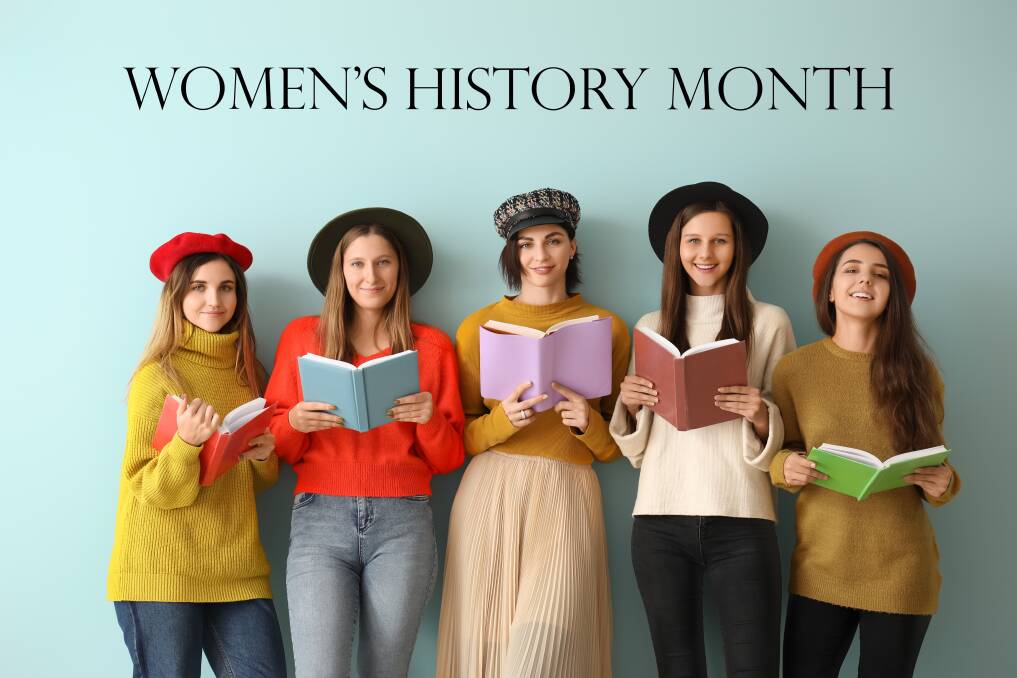6 Things we can learn from women's history month

This is branded content.
As we look back on the Women's History Month of March, it's important to reflect on how much progress women have made over the years, how proud women should be of their continuing efforts towards equality, and the action we can all continue to take for further advancement.
The theme for this year's Women's History Month is "Invest in women: Accelerate progress," so it seems only fitting that we revisit the progress women have already made, and consider how we can learn from it and continue to move towards a better future for all women. Included below are just some of these lessons.
1. Australian women were pioneers in education
Jane Foss Barff (1863-1937) was an Australian educationist, a leader and a fighter for a woman's right to an education in Australia. In 1891, she was notably a founding member of the Sydney University Women's Society which promoted higher education of women. Thanks in part to her efforts, women now have access to all levels of education, from a Bachelor of Business to an online Masters in Nursing. Stories like Barff's are an important reminder that the action we take now can continue to take effect for many years to come, and have a far bigger impact than we might ever imagine, long beyond our own lifetime.
2. Women-led businesses need more support
You might recognise Mary Reibey (1777-1855) as the name of the woman on one side of Australia's $20 bank note. Reibey arrived in Australia as a convict but eventually gained the attention of many after becoming a successful businesswomen, running multiple shipping and trade businesses and ending up very wealthy.
While, thankfully, Australia is now home to far more women-owned and run businesses, and most womens' business endeavours aren't so rare that they end up on currency, Reibey's story is a reminder of just how far we have come, and how important it is that we continue to champion women is business. Women haven't always had the opportunity to follow their career dreams, and in some parts of the world they still don't, so we must remember to celebrate those that do and can, and continue to advocate for those who aren't there yet.
3. Advocacy for women must include all women
While we can look back as long as a century ago on significant events that changed the lives of some women, unfortunately many advancements didn't include or benefit all women equally. While Australia granted women the right to vote in the Commonwealth Franchise Act in 1902, it excluded Indigenous Australians from this right unless they already had the right to vote before 1901.
It wasn't until the 1960s and 1970s that Australia started to see activism and results for Australia's First Nations peoples, including the right to vote. It is paramount that when considering and fighting for women that all women are included and advocated for.
4. Representation matters
Edith Cowan (1861-1932) is another name you might recognise from Australian currency. As the first woman to be elected to the Australian parliament in 1921, Cowan's portrait features on the $50 banknote. In her position, Cowan advocated for the rights of women, including compulsory voting, proportional representation and better education. As the first woman elected to Parliament, Cowan was able to speak out about and fight for women in a way that no man could have.
She provided a fresh perspective and unique lived experience. Diverse voices are incredibly important in politics and Cowan is a prime example of this. Women's representation is important at all levels of society, whether it be in the home, education, board rooms, or parliament. Without listening to the diverse voices of all Australian women we can't appropriately or effectively make the decisions that affect them.
5. You can't be what you can't see
Similarly to the way in which political representation is important, so is the representation of women in all other areas. While it might not be about political policy or changemaking, there is a lot to be said for the power of young girls seeing themselves represented in a diverse range of careers and paths of life. An Australian report titled 2019 Women for Media: 'You can't be what you can't see', women only accounted for 34 percent of direct sources, and 24 percent of indirect sources in media stories.
Women are still not fairly represented or credited when it comes to being experts in their respective fields. If young girls can't see women creating change, making names for themselves or becoming successful in other ways, they won't imagine it as possible for themselves. Fair representation plays a significant role in celebrating womens' success and encouraging younger generations to believe in themselves and follow their dreams.
6. Action creates change - no matter the size
If there's one thing we can learn from reflecting on women in history and the advancements of womens' rights, it's that action makes all the difference. So no matter who you are, or how you do it, you can be a part of change. Whether you are protesting at marches, getting involved in politics, educating yourself, sharing social media posts, or simply having a hard conversation with a loved one, it all adds up.
There is so much much to learn from the women who have come before us, and from those around us everyday. This list is just a small glimpse into some of the lessons we can take to invest in women and accelerate progress - a goal not just for Women's History Month, but for every day.


